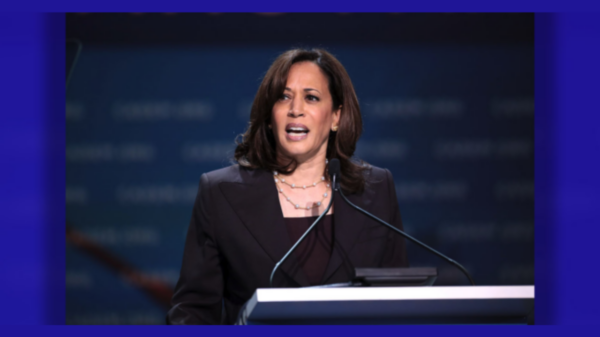By J. Pharoah Doss
Michigan Chronicle
When California’s Democratic Attorney General Kamala Harris was elected to the US Senate in 2016, an Associated Press headline boasted: California’s Kamala Harris becomes the first Indian American US Senator. Harris’ mother immigrated to the United States from India in the 1950s, whereas her father was born in Jamaica. The Associated Press was aware of Harris’ mixed background but chose to focus entirely on her Indian heritage for its historical significance.
In January 2019, Harris released her autobiography, The Truth We Hold. Harris noted, “My mother understood very well that she was raising two Black daughters. She knew [America] would see [her daughters] as Black girls, and she was determined to make sure we would grow into confident, proud Black women.” That same month, Harris appeared on Good Morning America and announced she was running for president.
Harris later appeared on The Breakfast Club radio show. The host asked Harris to address the allegations that she was not African American.
Harris said, “I was born in Oakland and raised in the United States, except for my high school years in Montreal, Canada… This is the same thing they did to Barack Obama … I will not spend my time trying to educate people about who Black people are … I am Black, and I am proud to be Black.”
Following The Breakfast Club interview, CNN host Don Lemon and April Ryan of The Grio debated Harris’s identity.
Ryan: When you see her, you see her blackness, but she is also South Asian … We are not a monolith.
Lemon: I don’t think you hear what people are saying. There’s a difference between being African American and being Black … All she had to say was that I am Black, but I’m not African American.
One might think Lemon failed to realize the distinction between being Black or African-American was anachronistic when it came to Harris.
Harris was born in 1964, just as the word Black was beginning to replace the term Negro. The term “African American” didn’t exist until the 1980s. At birth, Harris was racially categorized as Black, and her US citizenship made her an American—a Black American.
Harris’ parents’ nationalities and ethnic backgrounds are crucial aspects of her identity, but they did not determine how American society perceived her racially in the 1960s and 1970s.
When the phrase “African American” first emerged, it was synonymous with “Black American,” which is why Harris would not see the difference between the two terms or understand why people said she wasn’t African American because the terms were interchangeable for her. Making a distinction between Black and African American did not start happening until the twenty-first century.
The Breakfast Club host then interviewed presidential candidate Joe Biden, during which Biden famously stated, “If you have a problem figuring out whether you’re for me or Trump, then you ain’t Black.”
Biden was chastised for the statement, but Nikole Hannah-Jones, the creator of the 1619 Project and a mixed-race woman, tweeted: There is a difference between being politically Black and being racially Black … We all know this and should stop pretending that we don’t.
A lot of people didn’t know the distinction between being politically Black and racially Black.
A Black woman asked Hannah-Jones to explain, but Hannah-Jones replied: If you don’t understand the difference between being born/designated a certain race and taking up a particular set of racial politics, I am not going to educate you.
In Harris’ Breakfast Club interview, she indicated that she would not spend time trying to educate people about who Black people are, and Hannah-Jones stated that she would not educate anyone who claims to be unaware of the distinction between being designated a certain race and taking up racial politics.
If neither are willing to educate, all that’s left is ignorance and guesswork, which both women probably prefer.
However, if one makes an educated guess, one may deduce that Harris is Black because she grew up embracing Black American culture during a period when Black communities nationwide were experiencing a cultural renaissance—embracing Black pride, proclaiming Black is beautiful, etc. On the other hand, Hanna-Jones identifies as Black due to her adherence to a Black political ideology that has its roots in progressive politics.
President Biden has now withdrawn from the presidential race, making Vice President Harris the Democratic presidential candidate. Republican presidential nominee Donald Trump has said that Harris is Indian and only recently “became Black” to benefit her politically.
Trump’s colleagues and supporters have repeated this claim in an attempt to “educate” the public about Harris’s non-Black identity, but Trump is unaware that the Harris team is seeking to leverage his non-Black statements to their advantage.
Despite Harris’s progressive voting record in the Senate, progressives are skeptical that a Harris administration will fulfill their high progressive standards, and they seek policy guarantees before voting for Harris.
Last week, the Harris campaign launched “Republicans for Harris.” Many Republicans and former Trump supporters are fed up with the former President’s antics, and when they hear Trump claim that Harris is not Black, they interpret it as Harris not being as politically Black as former Democratic legislators Cori Bush and Jamaal Bowman, which will make it easier for these Republicans to back Harris.
Claira Monier, a former Reagan administration official, helped launch “Republicans for Harris” in New Hampshire, a swing state. Monier said in a press release: “Donald Trump’s dangerous and divisive agenda is completely antithetical to the conservative values I’ve always fought to protect, which is why I am urging my fellow Republicans to join me in supporting Kamala Harris this November.”
If the Harris campaign can persuade a few Republicans to defect, they will be taking a few bullets out of the proverbial gun the progressives have to Harris’ head.

You must be logged in to post a comment Login